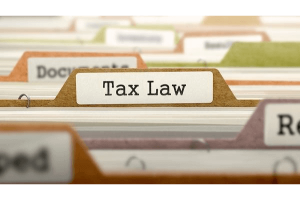Reliable Phoenix IRS Tax Collection Lawyers Ready To Assist You
 Nobody wants to be in the position of owing money to the IRS. However, each year, the IRS informs tens of thousands of taxpayers that they owe additional taxes. A tax discrepancy may be due to underreported income, unpaid self-employment tax, inaccurate estimated tax payments, or an employer’s insufficient withholding of tax. Regardless, the vast majority of taxpayers make a good-faith effort to comply with all tax laws, and receiving news of an IRS collection often comes as an unwelcome surprise. It is crucial that taxpayers take swift action when the IRS sends them a collection letter; otherwise, the IRS will pursue one of several means to collect on what they believe is due.
Nobody wants to be in the position of owing money to the IRS. However, each year, the IRS informs tens of thousands of taxpayers that they owe additional taxes. A tax discrepancy may be due to underreported income, unpaid self-employment tax, inaccurate estimated tax payments, or an employer’s insufficient withholding of tax. Regardless, the vast majority of taxpayers make a good-faith effort to comply with all tax laws, and receiving news of an IRS collection often comes as an unwelcome surprise. It is crucial that taxpayers take swift action when the IRS sends them a collection letter; otherwise, the IRS will pursue one of several means to collect on what they believe is due.
At Kaczmarek & Jojola PLLC, our team of Phoenix tax collection attorneys is here to help you through the IRS collection process. As former IRS trial legal team, we understand how the IRS approaches collection cases and are prepared to help you resolve your tax issues before things spiral out of control. We are certified tax specialists who represent individuals and businesses in all types of IRS collection cases. With the help of our dedicated Phoenix IRS tax collection lawyer, you can reduce the likelihood that the IRS will pursue a federal tax lien or tax levy.
What Happens When a Taxpayer Owes the IRS Money?
If a taxpayer does not pay the total amount of tax due when they file their tax return, or the IRS otherwise determines that a taxpayer owes more taxes than they paid, it will send the taxpayer a bill outlining the amount they owe. Outstanding tax balances are subject to both interest and penalties. The interest on back taxes compounds daily, and the IRS will assess a penalty at the end of each month the balance remains unpaid.
An IRS collection letter will outline the total amount of the tax due. This will include any interest and penalties that have accrued on the unpaid balance since the date the tax was due. Unpaid tax debt grows at a rapid rate, and unless a taxpayer takes prompt action to either pay off, negotiate, or dispute their tax balance, the balance can quickly become unmanageable.
For those who cannot pay their tax balance in full, tax collection payment options may be available. The IRS allows qualifying taxpayers to apply for a program in which they will make monthly installment payments. Approved taxpayers can choose between a short-term and long-term payment plan. A short-term payment plan is one in which the taxpayer agrees to pay off the debt in less than 120 days. There is no application fee for a short-term payment plan. However, for long-term payment plans in which the taxpayer will take more than 120 days to pay, there is a set-up fee ranging from $31 to $149. Regardless of the IRS collection payment option selected, interest will continue to accrue until the balance is satisfied. At Kaczmarek & Jojola PLLC, our Phoenix IRS tax collection attorney routinely helps clients get approved for manageable IRS payment plans that allow them to take care of their outstanding tax balance and put an end to the IRS collection letters.
Working with Phoenix Tax Collection Attorney to Negotiate with the IRS
Every taxpayer’s situation is unique, and some taxpayers will be unable to make monthly payments on an IRS installment plan. The IRS understands this reality, and taxpayers who find themselves in this situation may consider one of two options:
Partial Payment Installment Agreement
A Partial Payment Installment Agreement (PPIA) is an agreement between a taxpayer and the IRS in which the taxpayer makes monthly payments towards their tax obligation. However, unlike a traditional repayment plan, under a PPIA, a taxpayer’s remaining tax debt is eliminated at the end of the installment period. When the IRS approves a PPIA, it will ordinarily file a notice of lien against the taxpayer so that it will have the option to collect from the taxpayer if they default on the terms of the agreement.
Determining whether a taxpayer qualifies for a PPIA can be a challenge, as there are several factors a taxpayer must meet. For example, to qualify for a PPIA, a taxpayer must:
- Owe the IRS at least $10,000, inclusive of interest and penalties;
- File all previous tax returns;
- Not be in bankruptcy;
- Have not successfully requested an Offer in Compromise in the past.
The amount, type, and liquidity of a taxpayer’s assets also come into play when requesting a PPIA. If a taxpayer has liquid assets, the IRS will expect the taxpayer to sell the assets to satisfy their tax debt. Thus, to qualify for a PPIA, a taxpayer’s assets must either be illiquid, or the taxpayer must be able to show that selling the assets would result in financial hardship. Finally, the IRS has the right to revisit a taxpayer’s ability to pay every two years. Most taxpayers consider this a negative, as their payment amount can change if their financial situation improves.
Offer in Compromise
Another popular IRS collection payment option is the Offer in Compromise (OIC). An OIC is similar to a PPIA in that it allows a taxpayer to settle their tax debt for less than its actual balance. However, unlike a PPIA, an OIC cannot be revisited by the IRS once it is approved. Thus, in theory, for many taxpayers, an OIC is preferable to a PPIA because it offers finality.
The IRS, on the other hand, prefers PPIAs. This is because the IRS may be able to increase the monthly payment amount in the future, should the taxpayer’s financial situation change. Consequently, the OIC application process is more involved, and getting approved can be much more difficult. The IRS considers a number of factors when reviewing an Offer in Compromise, including:
- The taxpayer’s ability to pay;
- The taxpayer’s income;
- The taxpayer’s reasonable expenses; and
- The taxpayer’s asset-to-equity or debt-to-equity-ratio.
Taxpayers must fill out and submit IRS Form 433-A to apply for an Offer in Compromise. Form-433-A is an eight-page document that requires applicants to provide detailed information about themselves and their financial situation, including:
- Personal information
- Employment information
- Personal asset information
- Self-employment information
- Business asset information
- Business income and expense information
- Monthly household income and expense information
After completing each of these sections, Form 433-A calculates a minimum offer amount. As is the case with a PPIA, the IRS will not review an OIC application if there are any outstanding tax returns or if the filer has not made all estimated tax payments. At Kaczmarek & Jojola PLLC, our Phoenix tax collection lawyers help clients reduce or eliminate their tax obligations through a variety of means, including by submitting applications for Partial Payment Installment Agreements and Offers in Compromise.
What Happens If a Taxpayer Ignores IRS Collection Letters?
While it may be tempting to ignore IRS collection letters, doing so will make a taxpayer’s situation much worse in the long run. The IRS will not forget about the amount owed, and if a taxpayer does not respond to IRS letters, it will pursue enhanced collections efforts, including a federal tax lien or a tax levy.
What Is a Federal Tax Lien?
A federal tax lien is a legal right against a taxpayer’s property. It allows the IRS to collect the back taxes owed by eventually seizing and selling the taxpayer’s property. Placing a tax lien does not necessarily mean that the IRS will seize and sell a taxpayer’s assets, as it only gives the IRS the right to do so if it chooses. However, if a taxpayer fails to address their outstanding tax balance to the satisfaction of the IRS, the IRS may send a letter entitled “Final Notice of Intent to Levy.”
What Is an IRS Tax Levy?
An IRS tax levy refers to the actual seizure of assets that were subject to a federal tax lien. When the IRS levies an asset, it will take physical possession of the asset. Through its levying powers, the IRS can garnish wages, seize money in a bank account or investment account, and sell personal or commercial real estate. Vehicles and other personal property can also be subject to an IRS tax levy.
Reach Out to a Phoenix Tax Collection Lawyer for Immediate Assistance
 If you are receiving threatening letters from the IRS, ignoring them will only make the situation worse. The Phoenix IRS collection attorneys at Kaczmarek & Jojola PLLC can help you resolve your outstanding tax issues. If you allow us to work with you, we will begin by taking an in-depth look at your overall tax situation and create a comprehensive plan. Depending on your circumstances and preferences, we can help you apply for a Partial Payment Installment Agreement or put together a compelling Offer in Compromise. We represent individuals and businesses in all types of IRS collection cases, including those in which the IRS has begun the process of a federal tax lien and tax levy. To learn more, and to speak with a lawyer about your situation, call today. You can also connect with us through our online form.
If you are receiving threatening letters from the IRS, ignoring them will only make the situation worse. The Phoenix IRS collection attorneys at Kaczmarek & Jojola PLLC can help you resolve your outstanding tax issues. If you allow us to work with you, we will begin by taking an in-depth look at your overall tax situation and create a comprehensive plan. Depending on your circumstances and preferences, we can help you apply for a Partial Payment Installment Agreement or put together a compelling Offer in Compromise. We represent individuals and businesses in all types of IRS collection cases, including those in which the IRS has begun the process of a federal tax lien and tax levy. To learn more, and to speak with a lawyer about your situation, call today. You can also connect with us through our online form.